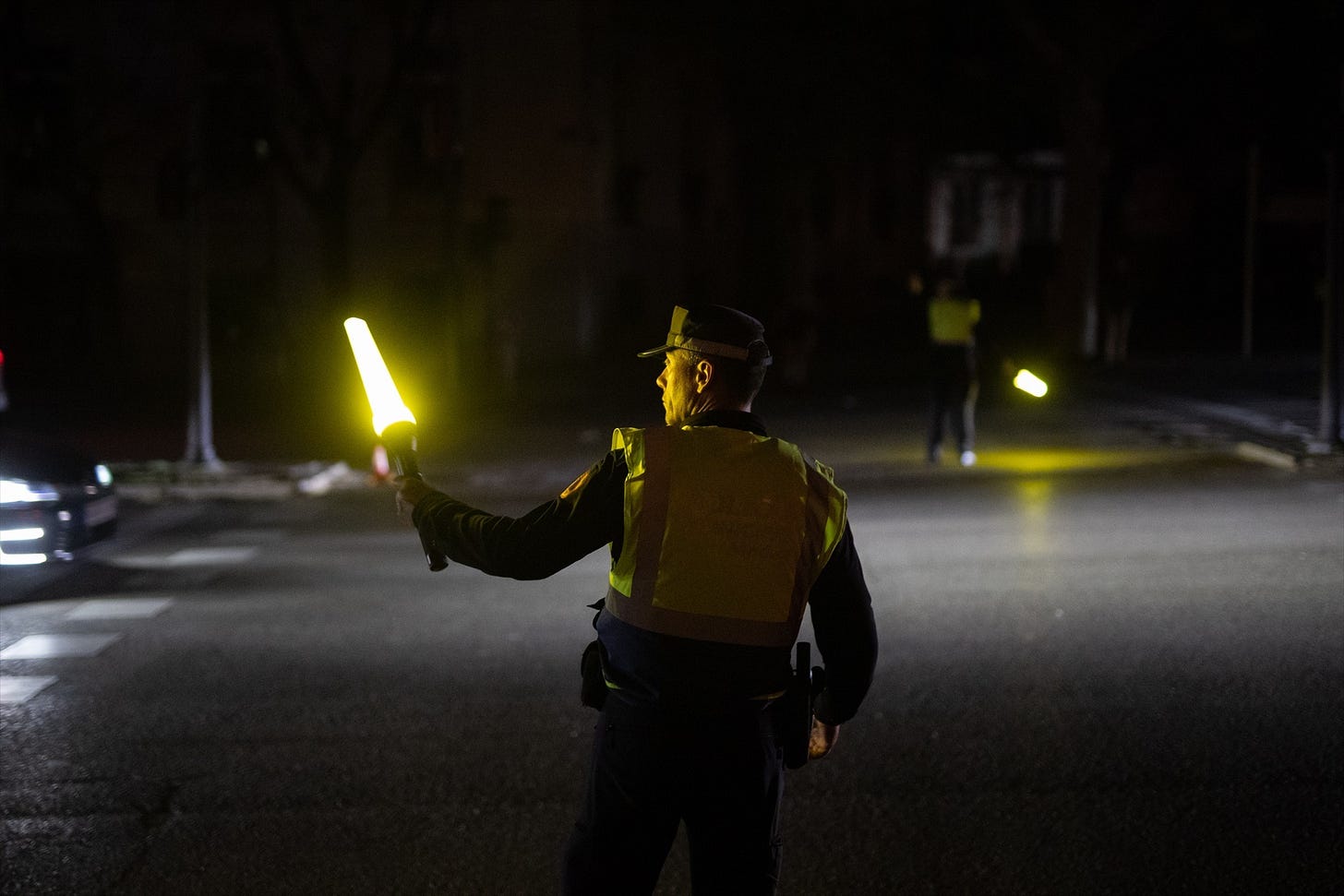El Apagón | The Blackout
Where were you when the lights went out?
12.33 pm on Monday, Spain went dark.
I am in the final stretches of the book. I’d dedicated the afternoon to editing, all efforts behind one final push. I’d spent the morning meeting our daughter’s teacher, polishing off two coffees, batting back enough emails to justify leaving my inbox alone, and pretty much finishing my daily procrastination rituals.…



